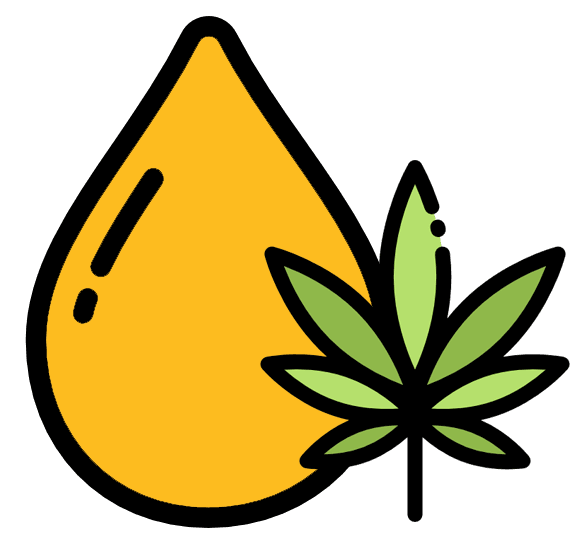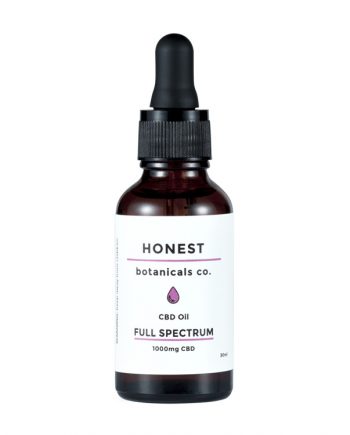What is CBD?
If you’re looking at this page you’ve probably heard of Cannabidiol, commonly shortened to CBD. CBD is a compound that does not share the same psychoactive properties that are associated with marijuana (THC). Therefore, it is a much better fit for those looking for therapeutic benefits, without a ‘high’.
Why do people take CBD oil?
People choose to take for a variety of reasons, including but not limited to:
- Anxiety
- Arthritis
- Epilepsy
- Neurological conditions
- Pain
- Sleep
The importance of getting a good sleep
In Canada, roughly 40% of Canadians will experience a sleep disorder in their lifetime. Life has a way of creeping into our sleep schedules whether we like it or not. Increasingly long and/or irregular working hours, social and familial obligations, illness, or psychological conditions such as depression or anxiety can all have detrimental effects on our sleep, both in duration and quality. Reduced sleep can lead to a weakened immune system, which can lead to an abundance of health risks.
Many people who suffer from sleep deprivation or disorders use ‘crutches’, stimulants to keep them awake, like 3 cups of coffee a day, or a red bull (to give you wings). This is concerning as we can never repay the debt of these missed hours of quality sleep. Perhaps instead of looking to stimulants to make our waking hours tolerable, we can look for alternatives to aid our sleep, making our waking hours more productive, and ideally stress-free (Impossible Is Nothing).
CBD: Can it help with sleep?
With the explosion of the Marijuana/Cannabis industry, it has brought with it, the widespread use of CBD oil and related products. Due to the rapid growth of this industry in such a short amount of time, the field of research in CBD has had a difficult time keeping up. And to make life-altering decisions for our health, it is important to become as knowledgeable about the product you are taking or considering taking.
It is claimed that CBD has a calming effect on the central nervous system, through something called the endocannabinoid system. So let us have a look at what the current research is showing in regard to CBD and sleep, so we can proceed with our choices, enlightened by science.
Sleep-Wake Cycle
The reason that we get tired at night, and wake up in the morning, is based on our sleep-wake cycle (aka circadian rhythm). This cycle is a daily pattern (circadian = one 24 hour day), which regulates when we need to sleep, and need to be awake. For the majority of us, the ideal cycle consists of seven to nine hours of sleep, usually at night, followed by 15 to 17 hours of wakefulness. Our bodies have different processes that control this cycle, where chemicals and hormone levels fluctuate over the course of a cycle. This causes us to feel alert or fatigued at somewhat predictable times.
Caffeine and other stimulants can affect these chemicals and can affect our body’s natural urges to sleep. Light can also affect our sleep/wake cycle as melatonin is very important for sleep, turning on lights, and looking at computer screens disrupts melatonin production, making sleep more difficult. For people who work shift work, it is harder to keep their sleep-wake cycle in check.
To help, higher doses of CBD are believed to have a more sedating effect, in other words, help you sleep. In a study of people with insomnia, it was shown that a 160 mg/day dose of CBD increased the total sleep time, and reduced the number of moments of wakefulness during the night. It is important to note that lower doses of CBD have been associated with increased alertness, so understanding the right dosage for optimal sleep is important.
What the research says:
A recent peer-reviewed article looked at whether CBD helped improved sleep and/or anxiety in a clinical population. The results of this article showed that both the participant’s anxiety and sleep improved, with the former showing a more sustained level over the whole study. Another study looked at the case of someone experiencing an anxiety-provoked sleep disorder after a traumatic experience, which would be exacerbated by stressful daily life activities. The results of this case study showed that CBD can be effective in reducing anxiety as well as insomnia, secondary to post-traumatic stress disorder (PTSD).
In Canada, there are medications being used for sufferers of Multiple Sclerosis which contain known amounts of THC and CBD as the main components. Using an oral spray, this medication has been shown to relieve MS symptoms, including sleep disturbances. From this, we can see that there are promising preliminary results that cannabidiol can positively affect sleep. Now let’s take a look at specific types of sleep issues and how CBD can potentially address them.
Insomnia/Sleep Quality:
In studies using animal models (rats), the effect of CBD upon the sleep-wake cycle showed that there was an increase in the total percentage of sleep. The effects on REM sleep varied by dosage, with high doses increasing REM sleep length. Cannabidiol has also been shown to block anxiety-induced REM sleep suppression, which increased REM sleep.
These results are strengthened by the case study mentioned above, that CBD reduced the symptoms of insomnia, secondary to PTSD. These results suggest that CBD has anti-anxiety effects that have the potential to positively impact sleep quality.
REM Behaviour Disorder:
A study looking at CBD and its effect on adults with Parkinson’s provided preliminary results that CBD can help suppress behaviours that are associated with REM sleep behaviour disorder (RBD). RBD is a parasomnia, which means anything abnormal that can happen when people sleep, excluding sleep apnea. In RBD individuals lose muscle rigidity during the REM stage of sleep, have accompanying nightmares, and may act out behaviours that are associated with their dreams. Results need to be replicated on a larger scale to ensure these benefits can be validated.
Chronic pain affecting sleep:
There have been recent studies on the effect of CBD cream addressing sleep issues caused by chronic pain. Chronic pain affects roughly 20% of the adult population, with this amount expected to raise as medical advancements increase the length of life, but not necessarily pain. In the majority of the research done on chronic pain and cannabis-based medicine extracts the drug Nabiximols has been trialed. Nabiximols is approximately a 1:1 THC/CBD ratio, the results of two studies indicate that there was a self-reported improvement in sleep quality.
Implications for personal use
Based on the initial research of CBD and its effect on sleep, it is up to the consumer if it is right for them. It is common knowledge that a lack of sleep can have mild to severe health consequences for individuals. Research suggests that CBD products can aid the quality and quantity of sleep in certain demographics of people. If you are having trouble sleeping and are looking to try a more ‘natural’ remedy, then CBD may be a good fit for you.
Just be aware of the results, which suggest low cannabidiol doses have been shown to have a stimulating effect (make us alert), whereas higher dosages are believed to have a more sedating effect (help us sleep). Of the different studies analyzed, there were no serious side effects, and the majority of participants responded well to CBD products.
Precautions
There are concerns that CBD can interact with other drugs/medications. There have been claims that CBD can affect anti-epileptic meds (for epilepsy), which means that medication dosage will likely need to be adjusted if someone is taking Cannabidiol. In addition, people with severe hepatic disease (hepatitis) may not suitable to use CBD due to their liver enzyme levels. Research on the reactions between anticancer agents and CBD needs to be undertaken to understand the implications.
It is also important for doctors and pharmacists to be aware of the ‘health products’ their patients are using if there are any serious health concerns or medications that could be affected by the use of Cannabidiol. In addition, keep in mind that there can be too much of a good thing. Take the recommended dosage of CBD, as to not cause side effects, such as drowsiness and an upset stomach.
-
20:1 CBD:THC Tinture – Mango | Honest Botanicals
$59.99 – $149.99 Select options -
CBD Oil – No THC | Honest Botanicals
$26.99 – $149.99 Select options -
Full Spectrum CBD Oil | Honest Botanicals
$29.99 – $169.99 Select options
References:
Babson, K., Sottile, J., & Morabito, D. (2017). Cannabis, Cannabinoids, and Sleep: a Review of the Literature. Current Psychiatry Reports, 19(4). doi: 10.1007/s11920-017-0775-9
Carlini, E., & Cunha, J. (1981). Hypnotic and Antiepileptic Effects of Cannabidiol. The Journal Of Clinical Pharmacology, 21(S1), 417S-427S. doi: 10.1002/j.1552-4604.1981.tb02622.x
Manzanares, J., Julian, M., & Carrascosa, A. (2006). Role of the Cannabinoid System in Pain Control and Therapeutic Implications for the Management of Acute and Chronic Pain Episodes. Current Neuropharmacology, 4(3), 239-257. doi: 10.2174/157015906778019527
Morin, C., LeBlanc, M., Bélanger, L., Ivers, H., Mérette, C., & Savard, J. (2011). Prevalence of Insomnia and its Treatment in Canada. The Canadian Journal Of Psychiatry, 56(9), 540-548. doi: 10.1177/070674371105600905
Shannon, S., & Opila-Lehman, J. (2016). Effectiveness of Cannabidiol Oil for Pediatric Anxiety and Insomnia as Part of Posttraumatic Stress Disorder: A Case Report. The Permanente Journal, 20(4), 16-005. doi:10.7812/TPP/16-005
Shannon, S., Lewis, N., Lee, H., & Hughes, S. (2019). Cannabidiol in Anxiety and Sleep: A Large Case Series. The Permanente Journal, 23, 18–041. doi:10.7812/TPP/18-041
Wagner, D. (1996). DISORDERS OF THE CIRCADIAN SLEEP–WAKE CYCLE. Neurologic Clinics, 14(3), 651-670. doi: 10.1016/s0733-8619(05)70278-4




Daniel Ekene Nkwonta
I have been suffering from anxiety issues almost all my life. I get disappointed easily and I used to worry when things don’t go as planned. But in the last 18 months an emotional problem spiked the insomnia and I started taking clonazepam and xanax. Thank God am off Clonazepam for 7 months now but still taking 1.5mg of Xanax I he before bedtime. Sometimes I get quality sleep and sometimes I don’t but complete or total insomnia is gone. Now I have tried CBD oil 500 and 750 but all to no avail and I took them 2hrs before or after my medication. I started with 3 drops then moved to 5 drops and finally to 10 drops. My observation was that when I was on 3 drops, it was exacerbating my condition by causing more panic attacks. Then at 5 drops the panic reduced but even at 10 drops, I have not felt the magic other users testify to. I am 6feet 4 inches tall and weigh 254lbs, what do I do to get back to nature with CBD with any medication.